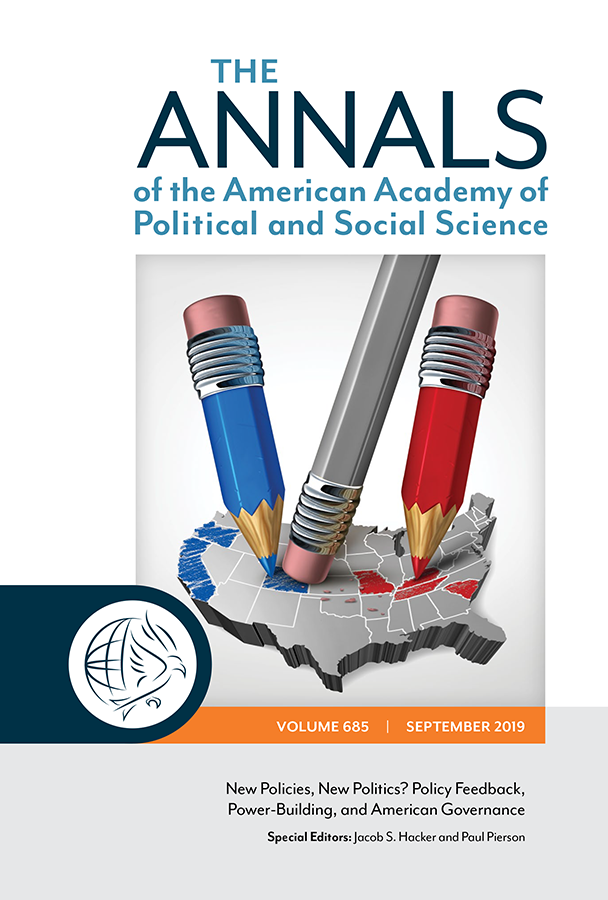Policies, once enacted, reshape public opinion, governing institutions, and political organizations in a process known as “policy feedback.” But recently, polarization and a high degree of economic inequality have made it much more difficult to gain broad acceptance for new initiatives that might traditionally have been expected to have strong positive feedback effects. At present, then, policy feedback is rarely translated into practical recommendations or policy advice, making the task of addressing collective problems vastly more difficult.
But what if a group of social scientists with extensive policy expertise were gathered to develop research-backed arguments about the ways in which policy feedback might be harnessed? What if that group looked at reshaping not only American economic and social outcomes, but also American politics, in ways that encourage continued efforts to address pressing public problems? In this issue of The ANNALS, special editors Jacob Hacker and Paul Pierson do exactly that, assembling researchers in important areas of policy to address how policy feedback can be implemented within the modern political climate.
The articles in this issue review past research on the political consequences of public policies—including, in all cases, research done by the authors themselves—and distill these findings into actionable, straightforward advice. They update prior findings in policy areas such as climate change, health care, the promotion of better jobs, and criminal justice reform, areas in which there is already a significant body of research that can help guide the design of active government policies. The result is a research-based guide for policymakers who wish to use government to address our nation’s serious collective problems.

